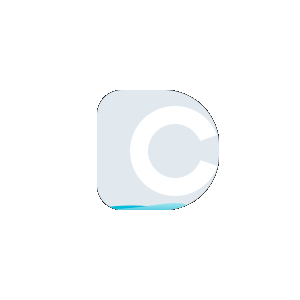Broken Link Checker
A broken link also known as a dead link is a link on a webpage that is no longer working. There are various reasons for broken links to occur, such as:
- You might have entered an improper URL for the link
- Linked web page has been removed from the destination website
- Destination website either no longer exists or it has permanently been removed
- Destination website might have been blocked by the use of software or a firewall
When a link on the internet fails to take the user to the expected site, it is called a broken link. This could occur in several instances; if the site is permanently unavailable, the web page is out of date, relocates to a new domain, or no longer exists. Having several broken links to your page is known as "link rot," and looks just as bad for your business as it sounds. A broken link checker will help to track broken links and keep links fresh and up to date.
Broken links can happen to be quite challenging for the visitors as they can make it impossible for them to access the desired information or resource, and then the users may decide to utilize any other source to access the necessary information. A website that has not been examined or updated for a long time may suffer from link rot, which is a website with many broken links.
It is, therefore, important to find and fix the link issues before it is late.
Just like Google broken link checker, DupliChecker offers a free Broken Link Checker that comes in very handy when it comes to finding link problems. This amazing tool makes it super easy for you check all the links for particular URL and let you know if there are any broken or dead links. Such as unique and efficient tool, makes it very convenient for you, especially if you own a website, to find the URLs that are not working and clean them in no time.
With the availability of Google broken link checker, broken link checker plugin or link safety checker, etc., we bet it has become easier than ever before to locate and fix the nasty links!
Dead hyperlinks or broken links on a website are not only annoying, but their existence may cause some real harm to the website as well as to your overall online reputation. Being a webmaster of a large website, you might not be aware of the broken or dead links that could be there on your site. You mostly come to know of the problem when visitors start reporting about getting link errors.
Typically when a visitor comes across a valuable link on a website he would like to access and read. However, on clicking the link user will get a 404 error. An experienced user is well aware that the error is occurring due to a broken link, but not everyone is well experienced. When a naïve user gets the error, he must think that the problem is possibly at their end. They will check and reboot their modem or system. Mobile users are likely to leave your page and return to the previous page.
Since social media is a double-edged sword, news travels fast and because of that your website may:
- Lose some of the existing traffic because sooner or later users can get frustrated
- Have negative impact on the website’s overall reputation and ranking in search engines
- Difficulties in attracting new users due to the broken links as people would simply won’t be able to access the desired pages
- Damage your online reputation because most of the dead links result in no reputation for the website.
All this will cause some far-reaching issues that sometimes it can even lead to a link rot.
With the increasing content on websites, it’s getting harder and harder for the webmaster to manage all the webpages and keep track of all URLs individually. Unfortunately, there are no ideal tools or services available for website integrity that can ensure proper relation between the webpages and all the updating that takes place. With the passage of time, some links can become stale, odd obsolete, or dangle, or put it simply dead as they no longer lead to valid resources, and visitors will get 404 errors or other such HTTP responses, whenever they attempt to access the pages. Modern CMS (content management systems like Joomla!) and blog software are likely to make the situation even worse by duplicating the same broken links across many different webpages which are generated dynamically so that users won’t be getting any 404 errors frequently. This can happen to internal links very often.
With external links, the situation could be even worse: as the website, you are linking may change names or locations or update the pages otherwise without informing. The external servers may be brought down temporarily or permanently, or the domains might be expired or sold. Since such situations can’t be controlled, so the only thing that you can do is perform the regular tests to make sure that all the links to your website are alive and not referring to a non-existing content.
Since you rarely have control over the environment in which you are operating. It’s almost impossible to tell whenever a link is dead or broken. Also, the exact reason which caused the link to stop working is hard to identify. If you are trying to detect and clean the broken or dead links, you will need a link checker just like the Google broken link checker which will notify you when a bad link detected.
This is when DupliChecker’s broken link checker will come in very handy. You can use this tool or any broken link checker plugin to detect and clean the dead links. All you have to do is enter the URL in the given field and click on Check Broken Link button. In a matter of seconds, you will get the results including all the links along with their status.
 Plagiarism Plans
Plagiarism Plans  Paraphrasing Plans
Paraphrasing Plans  Reverse Image Search
Reverse Image Search 




























